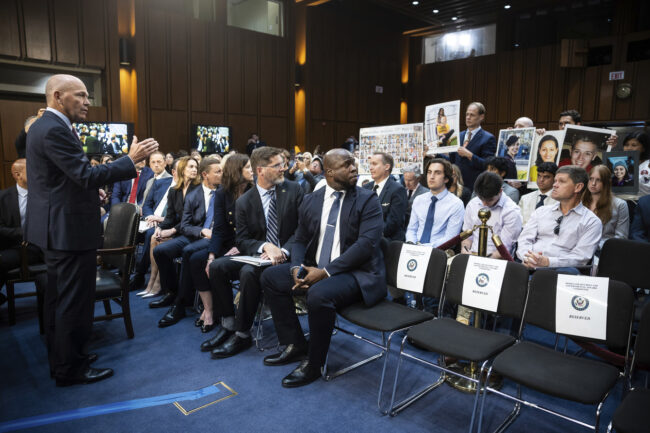
NEW YORK — Embattled aerospace giant Boeing is at a crossroads. By Friday, the company must decide whether to plead guilty to a felony fraud charge related to past deadly plane crashes or take its chances with a high-profile trial against the Justice Department (DOJ).
The Consequences of a Plea Deal
Choosing to plead guilty could severely tarnish the reputation of one of the United States’ most significant manufacturers and defense contractors. Such a decision would lead to substantial fines, potentially hinder Boeing’s ability to secure future federal contracts, and impact thousands of jobs supported by its factories. Accepting a plea deal would mean admitting to violating the terms of a 2021 agreement with the DOJ, which allowed Boeing to avoid prosecution initially.
The Risks of a Trial
Opting for a trial, however, would prolong Boeing’s legal and public relations ordeal. A trial would involve a rigorous discovery process, keeping Boeing in the headlines and providing a platform for victims’ families to seek justice publicly. This route could extend well into next year and pose an unpredictable challenge, especially if facing a Trump administration DOJ.
Background of the Crisis
The predicament stems from two catastrophic crashes in 2018 and 2019 involving Boeing’s 737 MAX aircraft, which resulted in 346 deaths. These incidents were linked to faulty flight-control software. In 2021, Boeing reached an agreement with the DOJ to avoid prosecution by paying fines and implementing internal changes. However, the DOJ now claims Boeing has violated this agreement, citing new quality-control issues that have emerged.
DOJ’s Offer and Boeing’s Dilemma
The DOJ has offered Boeing another chance to avoid trial, which includes fines and the installation of independent third-party inspectors. Victims’ families and some industry analysts demand harsher penalties, including a massive $24 billion fine and significant changes to Boeing’s board.
Legal and Operational Implications
If Boeing pleads guilty, it could face complications in maintaining its numerous federal contracts. The General Services Administration (GSA) outlines that companies can be debarred from federal contracts if they demonstrate a lack of integrity or have serious misconduct issues. Boeing could seek waivers, but this process might not be straightforward.
Boeing’s Response and Industry Reactions
Boeing has denied any wrongdoing, stating it has “honored the terms of that agreement.” Critics argue that the 737 MAX crashes should have been a wake-up call for Boeing to address systemic issues, and some believe that DOJ’s latest proposal does not adequately address these problems. Industry experts suggest that stricter conditions, like changes to Boeing’s board, are necessary to enforce genuine management changes.
Congressional Involvement
While some lawmakers have expressed concern, Congress has not yet taken decisive action. The FAA has placed Boeing on an improvement plan, but legislative measures to address Boeing’s issues have been delayed. The outcome of Boeing’s decision could influence future congressional actions and regulatory oversight.
COMMENTS